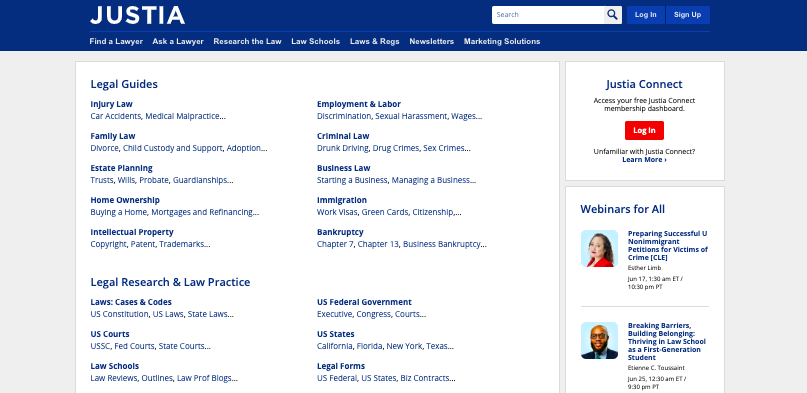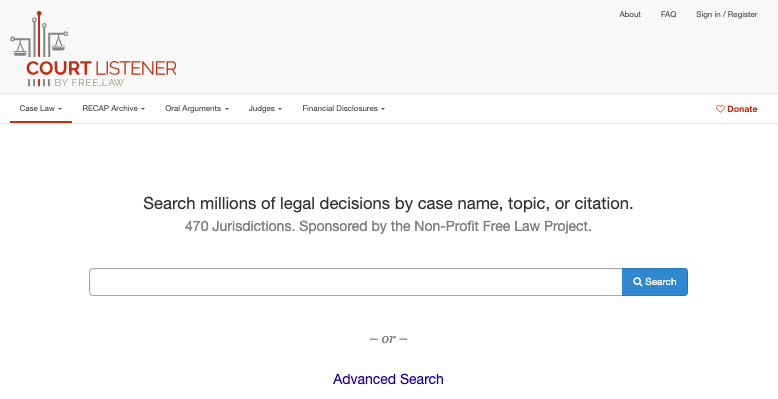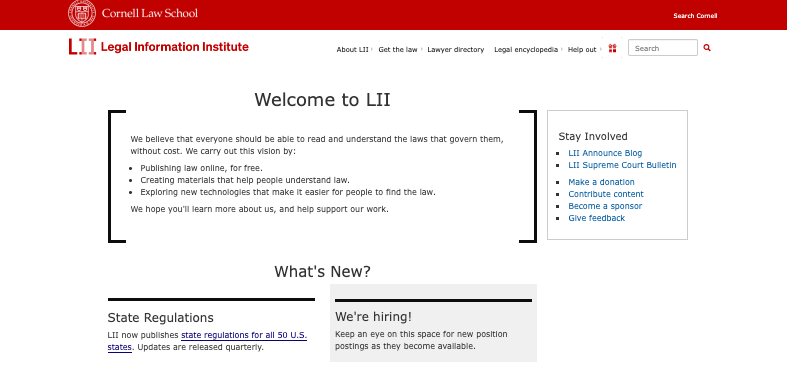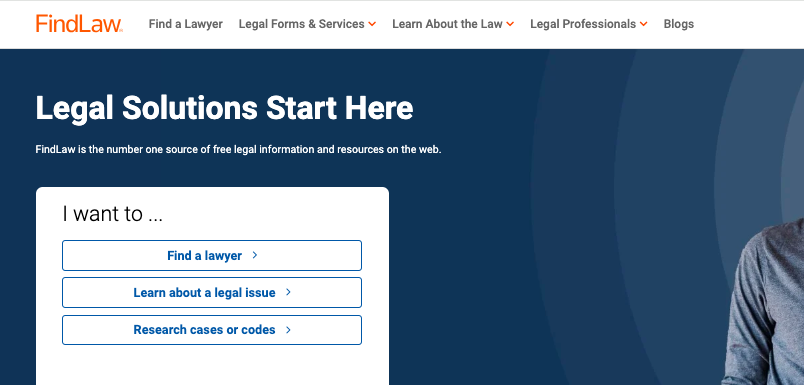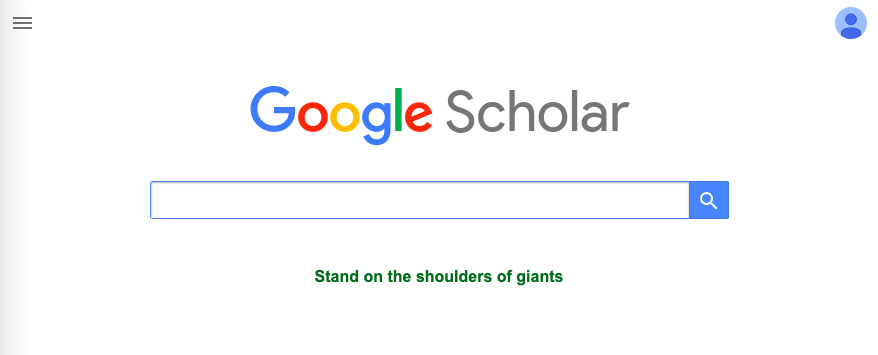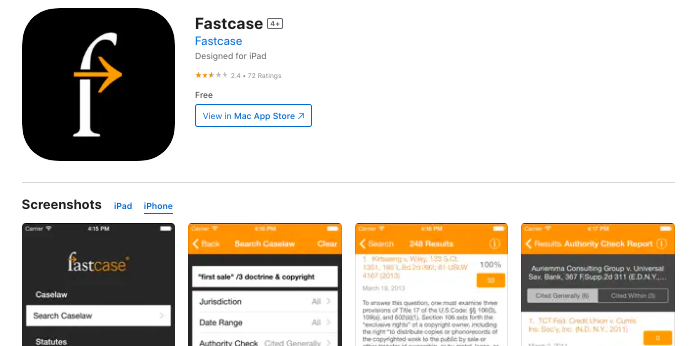Legal research can be expensive, especially for solo practitioners, law students, and small firms operating on tight budgets.
Fortunately, we have access to legal information through powerful free search engines and databases.
These platforms provide comprehensive access to case law, statutes, regulations, and legal commentary without the hefty subscription fees associated with premium services.
For preliminary research, verifying citations, comprehensive legal analysis, and everything legal, these seven free search engines are ideal.
Read on to find out more.
1. Justia
Justia has established itself as a comprehensive free legal information platform that serves lawyers, students, businesses, and the general public worldwide.
The platform provides extensive access to case law, legal codes, regulations, and statutes from federal and state jurisdictions across the United States.
What makes Justia particularly valuable is its well-organized database structure that allows users to browse legal materials by topic, jurisdiction, or practice area.
The platform also offers legal news, practice guides, and educational resources that help users understand complex legal concepts.
Justia’s search functionality is sophisticated enough to handle complex queries while remaining user-friendly for those less familiar with legal research techniques.
The platform also maintains updated databases of Supreme Court decisions, federal circuit court opinions, and state court cases, ensuring researchers have access to the most current legal precedents.
Check Out: Best Westlaw Alternatives
2. CourtListener
CourtListener represents a unique non-profit initiative that provides free access to an extensive collection of legal materials and court documents.
The platform has over three-million legal opinions from federal and state courts, for free, making it one of the largest free legal databases available.
It goes beyond simple case law access by offering case alerts and tracking systems that allow users to monitor specific cases or legal topics of interest.
One of CourtListener’s standout features is its RECAP archive, which provides access to federal court documents that would otherwise require payment through the PACER system.
Additionally, CourtListener offers unique resources such as oral argument recordings from the Supreme Court and various federal and state courts, providing researchers with insights into judicial reasoning and courtroom dynamics.
The platform’s citation analysis tools help users understand how cases have been treated by subsequent courts, though these features may not be as comprehensive as premium services.
Check Out: Best LexisNexis Alternatives
3. Legal Information Institute (LII)
The Legal Information Institute at Cornell Law School serves as a premier source for free legal information and primary legal materials.
It provides comprehensive access to current and historical legal documents, including the complete United States Code, Code of Federal Regulations, Supreme Court decisions, and various state legal materials.
LII’s strength lies in its educational approach to legal information, providing not only access to legal texts but also explanatory materials and context that help users understand complex legal concepts.
The platform maintains up-to-date versions of federal statutes and regulations, often providing both current and historical versions for comparative analysis.
It also offers specialized collections focusing on specific areas of law, such as constitutional law, tax law, and international law.
The platform’s commitment to open access and educational excellence makes it an invaluable resource for legal research, particularly for those seeking authoritative primary sources with academic backing.
Check Out: Westlaw vs Fastcase
4. FindLaw
FindLaw operates as a comprehensive legal information platform that bridges the gap between professional legal research and public legal education.
The platform provides extensive case law databases, legal codes, and practice area-specific resources that cater to both legal professionals and individuals seeking legal information.
FindLaw’s strength lies in its organization of legal materials by practice area and jurisdiction, making it easy for users to locate relevant information quickly.
The platform offers both primary legal sources and secondary materials, including legal guides, articles, and practical resources that help users understand how law applies to specific situations.
FindLaw’s search capabilities are robust enough for professional research while remaining accessible to non-lawyers.
The platform also provides regularly updated legal news and analysis, helping users stay current with legal developments.
Additionally, FindLaw offers practical tools such as legal form libraries and directory services that connect users with legal professionals.
Also Read: Best Rocket Lawyer Alternatives
5. Google Scholar
Google Scholar stands as one of the most accessible and free legal research tools available today.
This specialized search engine provides comprehensive access to scholarly literature, including federal and state court opinions, patents, legal journal articles, and academic publications.
What sets Google Scholar apart is its sophisticated search algorithms that help users find validated and vetted sources, ensuring the reliability of research results.
The platform allows users to filter searches by jurisdiction, date ranges, and specific courts, making it easy to narrow down relevant case law.
Additionally, Google Scholar’s citation analysis features help researchers understand how cases have been cited and treated by subsequent courts, providing valuable insights into the precedential value of legal opinions.
The interface is intuitive for both legal professionals and non-lawyers, making it an excellent starting point for any legal research project.
Explore: Best Apps For Lawyers To Bill Time
6. Fastcase
Fastcase operates as one of the world’s largest online law libraries, providing comprehensive access to legal materials including case law, statutes, regulations, constitutions, court rules, and law review articles.
Though the web platform requires one to subscribe, the mobile app can be used for free.
Fastcase has partnered with over 80 national, state, and county bar associations to provide legal research and solutions as a free member benefit, making it accessible to many attorneys through their bar membership.
The platform has evolved significantly with the integration of artificial intelligence tools, including Vincent AI, which provides automated case summaries and legal analysis to help users quickly grasp complex legal issues.
Fastcase’s Authority Check feature functions similarly to traditional citation services, allowing users to verify whether cases remain good law and identify negative treatment.
The platform’s Bad Law Bot specifically alerts users to cases with negative citations, helping prevent reliance on overturned or criticized precedents.
Check Out: How To Print Android Text Messages For Court?
Conclusion
These free platforms give access to millions of legal documents, court opinions, statutes, and regulations that would otherwise cost thousands of dollars annually through premium services.
While they may not offer every feature found in expensive subscription databases, they provide sufficient functionality for most legal research needs.
The key to effective legal research using these free tools lies in understanding each platform’s strengths and using them complementarily.
Enjoyed the post?

